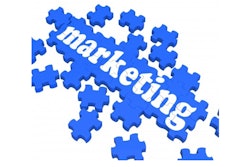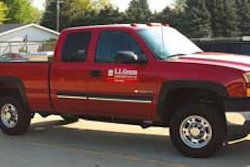Editor's Note: This article orginially appeared in Kitchen & Bath Design News and has been edited for publication on ForConstructionPros.com. To view the orginal article, please go here.
It was just a few years ago when only a few people had e-mail addresses. Now, no self-respecting contractor would be without one. Just as very few people today are without a cell phone and cable TV, few people are without Internet access and e-mail. Sure, there are a small number of people who still have rotary phones and TVs that only bring in three channels with a rooftop antenna, but just about every age group has e-mail.
E-mail is cheap. You can send out letters to your e-mail list as many times as you want without spending huge amounts on postage. Since e-mail has little cost and direct-mail rates are high, it came as something of a surprise to find out business owners are planning to increase their spending on direct mail.
DIRECT MAIL PROS
Discussing how well an e-mail list performs versus a direct mail program, it was found out that, for getting new business (or more business), direct mail has been producing better results. I didn't understand why. Just a few years ago, many firms abandoned direct mail almost overnight in favor of e-mail and Web sites. There seemed to be a massive migration to electronic marketing because "everybody was doing it" and nobody wanted to seem to be "out of step." E-mail "blasting" could reach tens of thousands of buyers at a fraction of the cost of direct mail. It was also quick and easy to implement.
But, I think, since everybody was doing it, it wasn't taken as seriously as direct mail. Constant bombardment from tens (if not hundreds) of thousands of spam sites could be almost too much for many customers to bear. E-mail started to be intrusive. Today, you have to compete with Nigerian money scams, Viagra at give-away prices, stock hypes, porn sites and mail-order drugs. You also have to compete with e-mail solicitations from big companies such as Pier One, Best Buy, Circuit City, Amazon, etc.
Here are some of the reasons I was given from those who have made the choice to go back to direct mail marketing on a regular basis.
- First of all, everyone takes direct mail seriously. When the mail arrives, its one of the most important moments of the day, both at the office and at home. We complain if it's late (at least at our office) and feel deprived if there's nothing of any importance. Usually, we stop whatever we're doing when the "snail mail" arrives to go through it. In other words, we view postal mail as a priority. It's not exactly the same for e-mail. Don't you feel slighted when you find out there's nothing in your morning mail at home?
- Secondly, postal mail has a more personal feel to it. If your name is on it, it's yours. I would much rather receive a Hallmark card in the mail, rather than an electronic greeting card. Most people feel that way. An "e-card" — or an "e" anything — just isn't the same as the card that shows up in your mailbox with actual handwriting. More thought and effort go into sending a card in the mail. And, of course, we give the most attention to the mail that seems the most personal. We reject the mail that look like nothing more than an ad. So, with direct mail, you can easily personalize any type of print piece to replicate that personal feeling.
- Finally, regular mail is tangible. You can hold it in your hand. You can feel it. You can toss it in the trash if it's something you don't want, but it takes more than just a click to get rid of it. I know of people who hang on to response cards for months before they send them in. E-mail is designed for instant action. Unfortunately, most of the time, it's instant deletion. That's not to say that e-mail lists and e-mail letters don't work. It's just that direct mail seems to work better, in spite of the cost. Sure, you can do both, but an aggressive, well-thought-out direct mail campaign still seems to bring in more immediate bucks.
TANGIBLE EVIDENCE
I remember years back when I was working in retail, I had a clinic on a date that snuck up on me. We forgot to promote it until just a week before. While we were running around trying to figure out what to do, we decided to send out a thousand-piece mailer as well as get our salespeople on the phone with our past customers and try to get them in.
In the midst of the confusion, half of the direct mail envelopes were sent out unstuffed by mistake. There was nothing in them. And, unbelievably, half of those people who received the empty envelope were intrigued enough to call and ask what was in them.
We told the people who called about the clinic, and many of those people came and brought their friends.
Compare that to e-mail. Send an e-mail to someone with no subject line or no message, and it gets deleted in a flash. Forget who it came from. It's one less thing to have to deal with.
Spam filters are also grabbing a lot of the messages…even the ones that are sent to your opt-in list.
So, don't throw away your customer mailing list in favor of an e-mail list. Continue to update it. Purge it once in a while. Get the name of every person who calls your business on the phone, and then try for an address to keep him or her on your customer/prospect list. Don't throw out those leads from outside events. Set them up in their own category on your mailing list. Keep in contact with your past customers -- maybe they might not be in the market for something else right away, but they probably will know people who liked your service, and would like it again at some point.
Direct mail in an envelope that you can touch, with a letter you can feel, can work wonders. Buy a good mailing list once in a while to attract new business. Continue to use your e-mail list, but don't forget about direct mail. It still has tremendous benefits.
Bob Popyk is CEO of Bentley-Hall, Inc., a marketing firm specializing in sales and marketing strategies for creating more customers. His sales meetings and seminars are presented internationally to major companies and industries. His books include Here's My Card and How to Increase Your Business By 25%…Starting Next Week! For more information on Bob, or his company, e-mail [email protected], or write to: Bentley-Hall, Inc., 120 Walton Street, Suite 201, Syracuse, New York 13202, or visit his Web site at www.bentley-hall.com.

















